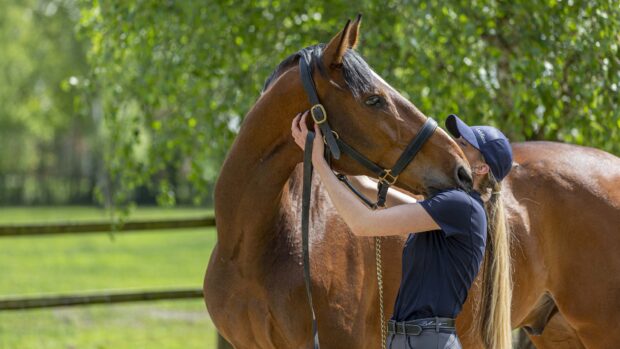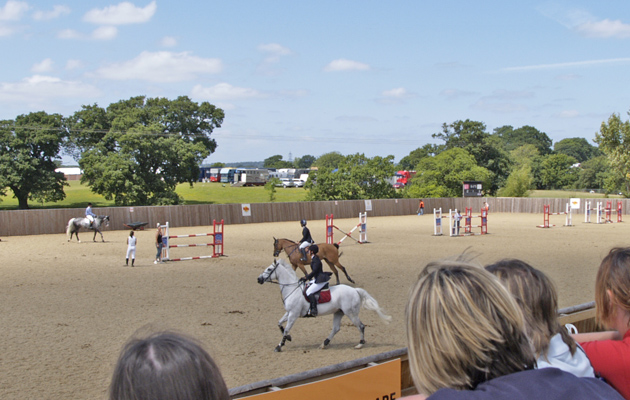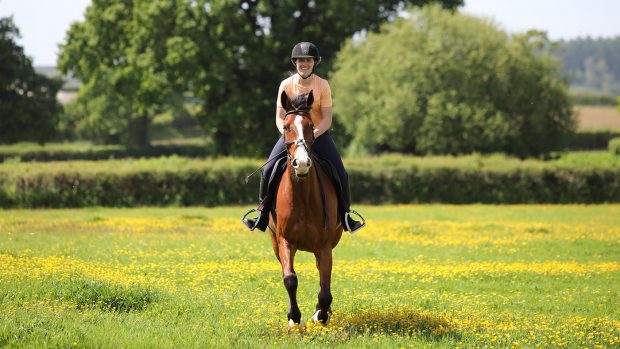Finding a horse riding coach that suits both horse and rider can be key to securing success, no matter your chosen discipline, or even if you don’t compete.
There are several factors that should be taken into account when choosing a coach. Performance psychologist and mental coach Charlie Unwin reveals some key pointers he believes are crucial to finding a horse riding coach that is best-suited to you and your horse.
So what makes a good horse riding coach?
Charlie starts off by asking: “What is it that coaches do (or don’t do) that get the best out of their riders, especially in a sport where it’s so easy to be focused on the horse?”
He points out that the sport isn’t only about the horse.
“I think good coaches work just as much with the rider as with the horse, and by that I mean they understand the rider, they understand what’s going on inside with the rider’s thoughts, their feelings, insecurities and focus,” explains Charlie. “In doing so, I think good coaches are able to build a high degree of consistency with their riders to help them perform under pressure.”
Charlie says successful horse riding coaches use a considerable amount of psychology, and this psychology can be broken down into three areas.
“The first one for a coach is being able to focus on themself as an individual. What is it about them? Their experience and their knowledge? Yes, but also their personality, their preferences, their body language, their emotional intelligence and their ability to ask questions, which impacts the rider,” he explains.
“The second part is focusing on the rider. What is it about the rider that might influence the consistency of their performance? For example, their mindsets? How can coaches better get underneath the surface of their riders to understand why they did something brilliantly one day, and then when they tried to do the same thing the next day they really struggled. So being able to focus on the rider as a human is an important component of the psychology of a coach.”
Charlie says that the final part is focused on performance.
“It is being able to understand performance as a function of goals, as a function of feedback, of focus, and with all the tools that go with it.”
When it comes to coaches involved in horse sport, Charlie believes that they all have their own personal “brand”.
“Coaches are as individual as the riders. They will have their own identity, they have their own preferences. Coaches need to understand their own personalities and preferences, and understand what is it about their past that’s led them to those personalities and preferences. Coaches should be aware of how their own preferences and identity affect that of the rider.”
Charlie explains that traditionally, coaches get paid by the hour, but that whole hour shouldn’t necessarily be spent with the rider in the saddle. But perhaps not all riders want to pay a coach if they are not riding their horse for the whole session – this is a challenge some coaches face.
“There is no doubt that I think coaches have to be able to work with the rider out of the saddle as well as in the saddle,” says Charlie. “They’ve got to be able to talk about goals. They’ve got to be able to spend time reflecting on what happens – what progress they’re making, how do they accelerate that progress? What have they got to work on? I think a lot of coaches feel like they’re only able to add value when those riders are in the saddle. There are challenges like this, which I think we always have to be able to address.”
A question of belief
Charlie says that research has shown the importance of a coach having self-belief and how a lack of self-belief can impact the performance of those working under that coach’s guidance.
“The impact was first discovered in rats, where some students were given a set of lab rats which they had to train how to successfully negotiate a maze as quickly as possible,” explains Charlie. “One set of students were told that they had the clever rats who were ‘maze bright’, and the other set of students were told that they had the unintelligent rats who were ‘maze dumb’.
“Funnily enough, the students with the clever rats were able to teach them to get through the maze significantly quicker than the students with the maze dumb rats. Of course, what they were told at the end of this experiment was that in fact, there was no intellectual difference between the rats whatsoever – they were all equally as intelligent.”
Based on this experiment, Charlie says that the only differing factor that could have influenced the performance of the rats were the attitudes and beliefs of the experimenters.
“This is profoundly important when it comes to coaching because we’re working with people, not rats and if the affect is still present with rats, which, let’s face it, we can’t verbalise with rats, it just goes to show you that there’s still something that the rats are picking up on,” says Charlie. “Maybe the amount of commitment, the amount of patience, or the amount of time the students spent, that is stopping the rats from fulfilling their potential.”
Charlie explains that humans are far more complex in that they have language, greater communication and relationships, so the effects can be hugely amplified in humans compared to rats. There is obviously also a horse involved too, who is likely to be being influenced by the same factors.
“One of the essential elements in working with coaches is being able to understand the beliefs they have about their riders,” says Charlie.
Know your own mind
Charlie says that riders and coaches should be able to have better conversations out of the saddle.
“Being able to accelerate someone’s progress relies on a coach being able to help them draw the right connections in their own minds,” he explains. “I believe one of the most important roles of a coach is to help a rider know their own minds, because once you’ve got them technically doing the right thing, it’s then about them being able to get to that point by themselves.”
By this, Charlie means that when a rider is in a start box, entering an arena or going into a showjumping arena, they have no one other than themselves to rely on.
“If a rider doesn’t have the security or confidence to know not just what they’ve got to do in that moment, but also why they’re doing it, then they’re never going to perform to the same level,” Charlie states.
“That is much more than just about working with people in the saddle – that is about being able to sit down with them and help them to build confidence in their own mind, asking questions, being curious, helping them make connections for themselves based on their experience, and that is an activity that has huge value to riders.”
Charlie says that this isn’t the sum total of what makes a good coach.
“There are loads of other factors such as being able to tap into the motivation of a rider, being able to help them deal with success and failure, and work with the rider’s wider team, such as their parents and farriers.”
Who is Charlie Unwin?
Performance psychologist and mental coach Charlie Unwin works across sport business and the military and helps riders to optimise that performance from the inside out in training and in competition. He’s passionate about working with the equestrians because the horse’s performance is an extension of the rider’s. His clients won four gold medals at the Olympics in Tokyo, as well as three silvers and one bronze.
You might also be interested in:

How to learn from success and failure: top tips from performance psychologist Charlie Unwin

Transform rider nerves into positive energy with Charlie Unwin’s expert tips

Get ready for the new season – how to perform under pressure

Subscribe to Horse & Hound magazine today – and enjoy unlimited website access all year round
Horse & Hound magazine, out every Thursday, is packed with all the latest news and reports, as well as interviews, specials, nostalgia, vet and training advice. Find how you can enjoy the magazine delivered to your door every week, plus options to upgrade your subscription to access our online service that brings you breaking news and reports as well as other benefits.



